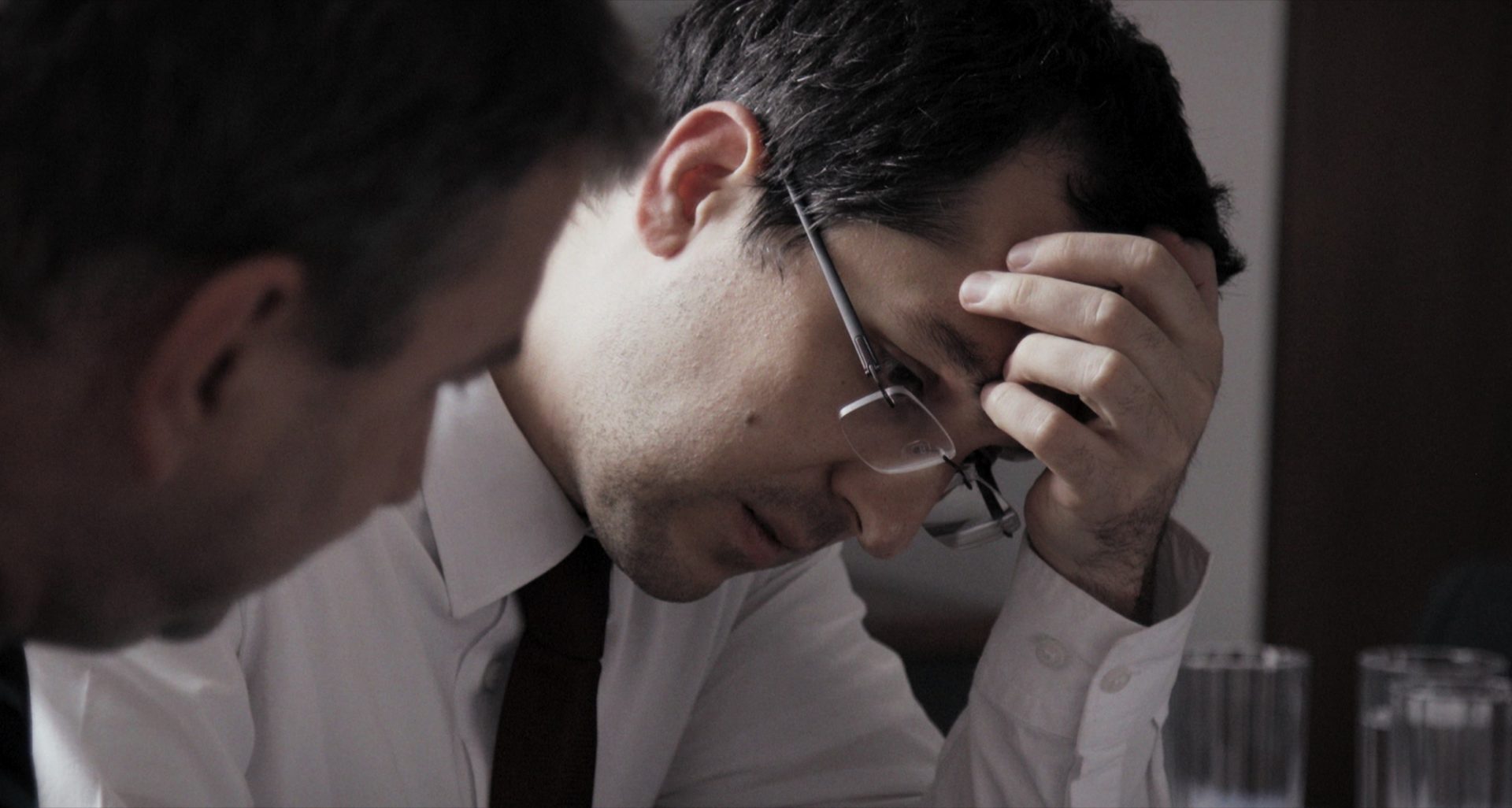Most documentaries have an air of importance, simply by being attached to a real life issue or cause. In general, these documentaries inherently use storytelling devices that are known to work like talking head drops or statistical bombshells. But the truly great documentaries craft a story around their footage, with a plot, characters, and maybe a twist or 2, letting the story explain its importance instead of overdirection. So kudos to Alexander Nanau and his team: no talking heads or stats are needed: we’re inside of a great political thriller!
Collective’s amazing tale starts out with cleaning supplies and a Romanian sports magazine writer, Cătălin Tolontan. I almost laugh at the Chicago Bulls beat writer looking into Lysol products for a story, but that’s exactly what Tolontan did. A fire broke out in the Collectiv nightclub in Bucharest, killing 27 and injuring 180. Tolontan’s Gazette magazine got involved when they found out that 37 more people died after the fire, mostly from bacterial infections. Attached to the national story of the fire, Tolontan goes where all investigative journalists go: down the rabbit hole of corruption/negligence that government and business forces have created, and pull the exposure rabbit out of the hat.
Collective’s real story has more compelling pieces than almost all of the artificially manufactured movies made today. The first half hits you immediately, using the live footage from that Bucharest fire, and giving us images of the aftermath, tying victim’s deaths to improper hospital sterilization. Tolontan’s “talking heads” are meetings with other journalists at his magazine, where they plan their investigation, follow money movement and other leads, and prepare questions for government officials under more intense scrutiny. Nanau’s doc plays like a thriller, introducing us to new “characters” like a new Minister of Health Vlad Voiculescu and “plot twists” (some that are almost too amazing to be real) with each new discovery and layer of fraud/corruption to unfurl. You’ll be reminded of All the President’s Men or Spotlight with what Collective is doing here, uncovering danger and powerful institutional forces along with the corruption. That’s not hyperbole either: this doc with just its first half can stand proudly alongside the best of the genre as an ode to the importance and entertainment possibilities of investigative journalism.
What makes Collective so special is the 2nd half point of view shift in the story, the point where most investigative journalism movies end. We now start seeing this story through Vlad Voiculescu’s eyes. Appointed from a more patient-focused career, Vlad comes in like a crusader, intent to earn back the public’s trust in Romania’s health systems and be transparent about the issues he’s fixing inside of the country’s healthcare system. That type of paradigm shift in operation does a few things. It certainly keeps our journalists busy, now with a government ally providing information on other pieces of corruption inside the healthcare system. However, it also starts horrifying the Minister, as every knot he tries to undo he finds 3 more knots he has to undo first. Plus, being in politics now, Vlad has to filter all his briefings through a messaging filter, because he doesn’t want to lose public support for his cause. Collective paints a bleak but captivating outlook for any person or group trying to elicit change in society: status quo forces will attack you from any angle which is effective at stopping your work. What stalls Vlad is particularly heartbreaking especially because we see exactly how it really isn’t his fault.
Collective opened my eyes a little wider about the plight of a crusader, but I also grew more impressed by people like Vlad and Cătălin Tolontan, called to fight simply because they know it is right. Their beacon shows some of the doc’s glimmers of hope, as more people, inspired by their example, come forward to help speak truth to power. It certainly takes a collective to help bring about change, and at some point, we all have to make the choice to stand up to help the helpless. To be the Collective that bends that moral arc of the universe toward justice.

